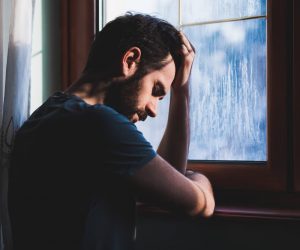Seasonal Depression and its Impact on Substance Abuse

The Challenge of Seasonal Depression for People With Substance Use Disorder
When seasons change, it’s not just the weather that’s impacted. Many people struggle as the holiday season approaches or during extreme temperature shifts. For those struggling with seasonal depression, the start of a cold winter season can induce feelings of overwhelming sadness, loneliness, and depression.
As a result, these individuals may turn to alcohol or drugs to drown their feelings, which ultimately makes them susceptible to addiction. Substance abuse is a common outcome for those who struggle with seasonal depression, making it so important for these individuals to have access to resources that will help them manage their Seasonal Affective Disorder (SAD).
Some of the main factors that contribute to seasonal depression include:
- Colder weather
- Holiday season
- Less sunshine, more darkness (shorter days, longer nights)
- Isolation due to cold and dark weather
- Dry months causing water droughts
What Is Seasonal Depression?
Seasonal Depression, also commonly referred to as Seasonal Affective Disorder or SAD, is a disorder affecting nearly five percent of adults across the U.S. It is a type of depression that sets in due to environmental factors like a change in season, which occurs during the same time every year. When an individual’s circadian rhythm, which impacts sleep patterns, is disturbed it begins to affect the brain’s chemicals, resulting in depression.
If you or a loved one are struggling with addiction, call WhiteSands Alcohol and Drug Rehab today at 877.969.1993 to learn how we can help.
Symptoms of Seasonal Depression
If you or someone close to you struggles with seasonal depression, there are certain signs and symptoms to look out for. Some of these include:
- Insomnia and issues sleeping
- Feeling hopeless
- Feeling down and depressed (cannot ‘snap out of it’)
- No interest in hobbies or activities
- Appetite changes
- Feeling sluggish or ‘lazy’
- Suicidal thoughts
- Finding it difficult to concentrate
Those who struggle with seasonal depression or seasonal affective disorder will often exhibit these symptoms when the colder and darker seasons begin to occur. This time is when these individuals are at a much higher risk of substance abuse and addiction.
Causes of Seasonal Depression
There are several different causes of SAD, and the reasons will vary from one person to the next. While it is not proven 100 percent why some people are more prone to the disorder than others, there are a few key factors that play a part, which includes:
- Low serotonin levels: This chemical in the brain is responsible for happiness and contentment. When this is lacking, the individual is at risk for SAD.
- Higher levels of melatonin: Melatonin is a naturally-occurring chemical in the brain that aids in sleep and regulating normal sleeping patterns. When the chemical balance is off, an individual with higher levels of the chemical will have the urge to sleep more.
- Lack of vitamin D: A side effect of low vitamin D levels is depression. When an individual’s levels of this vitamin are low, they are at higher risk for SAD.
The Connection Between Seasonal Depression and Substance Abuse
Those who have an underlying mental health disorder are at greater risk of seasonal depression than those who do not have a co-occurring disorder. Those struggling with a mental illness will often start abusing substances to lessen the symptoms of mental disorder. This reaction is why those who struggle with seasonal affective disorder often turn to drugs and alcohol to cope with their illness’s unfavorable side effects. Self-medicating is never the right solution to deal with a disorder, as this can lead you down an extremely dangerous path of addiction.
Instead, those who struggle with both a substance abuse disorder in conjunction with a mental health disorder are urged to seek dual diagnosis treatment. This type of therapy is used to treat and manage both disorders simultaneously to effectively stabilize the patient.
Dual Diagnosis Treatment for Seasonal Depression and Addiction
Those who struggle with an underlying mental health disorder and seasonal affective disorder should immediately obtain the help they need. WhiteSands Treatment is a premier drug and alcohol addiction treatment center in Florida specializing in treating those who struggle with all types of substance abuse and mental health disorders.
The dual diagnosis treatment at WhiteSands Alcohol and Drug Rehab has helped thousands of individuals cope with and manage their disorders, which allows them to lead normal, healthy, and productive lives that are not controlled by their disorders. Contact WhiteSands today to learn how you can tackle your seasonal depression for good.
If you or a loved one needs help with abuse and/or treatment, please call the WhiteSands Treatment at (877) 855-3470. Our addiction specialists can assess your recovery needs and help you get the addiction treatment that provides the best chance for your long-term recovery.
